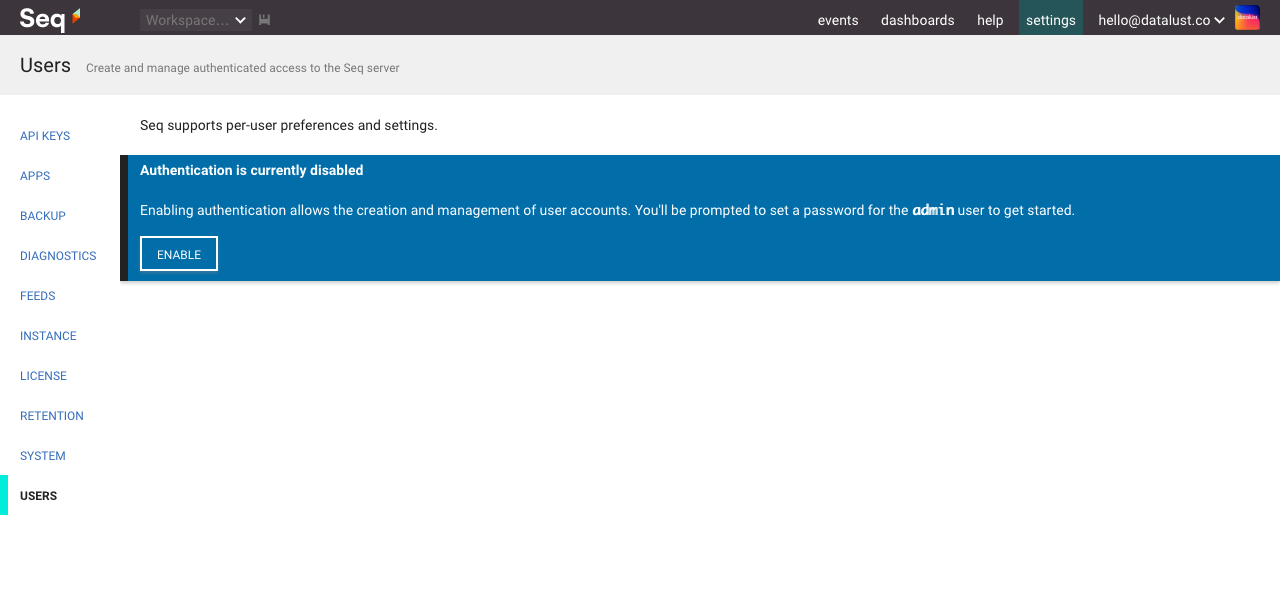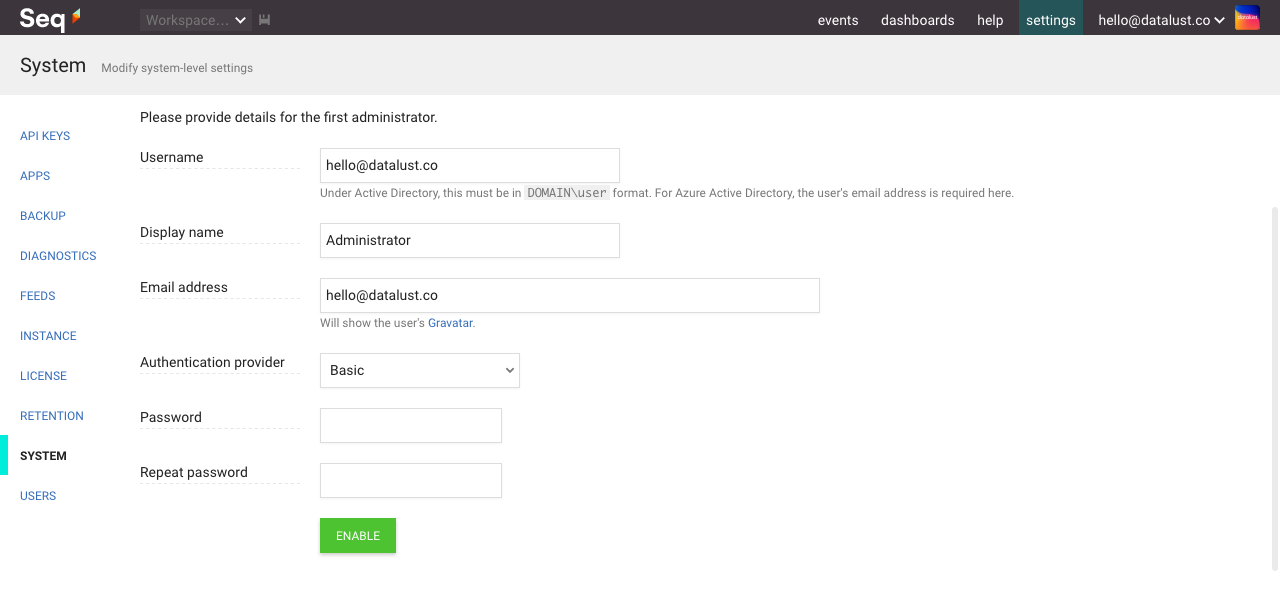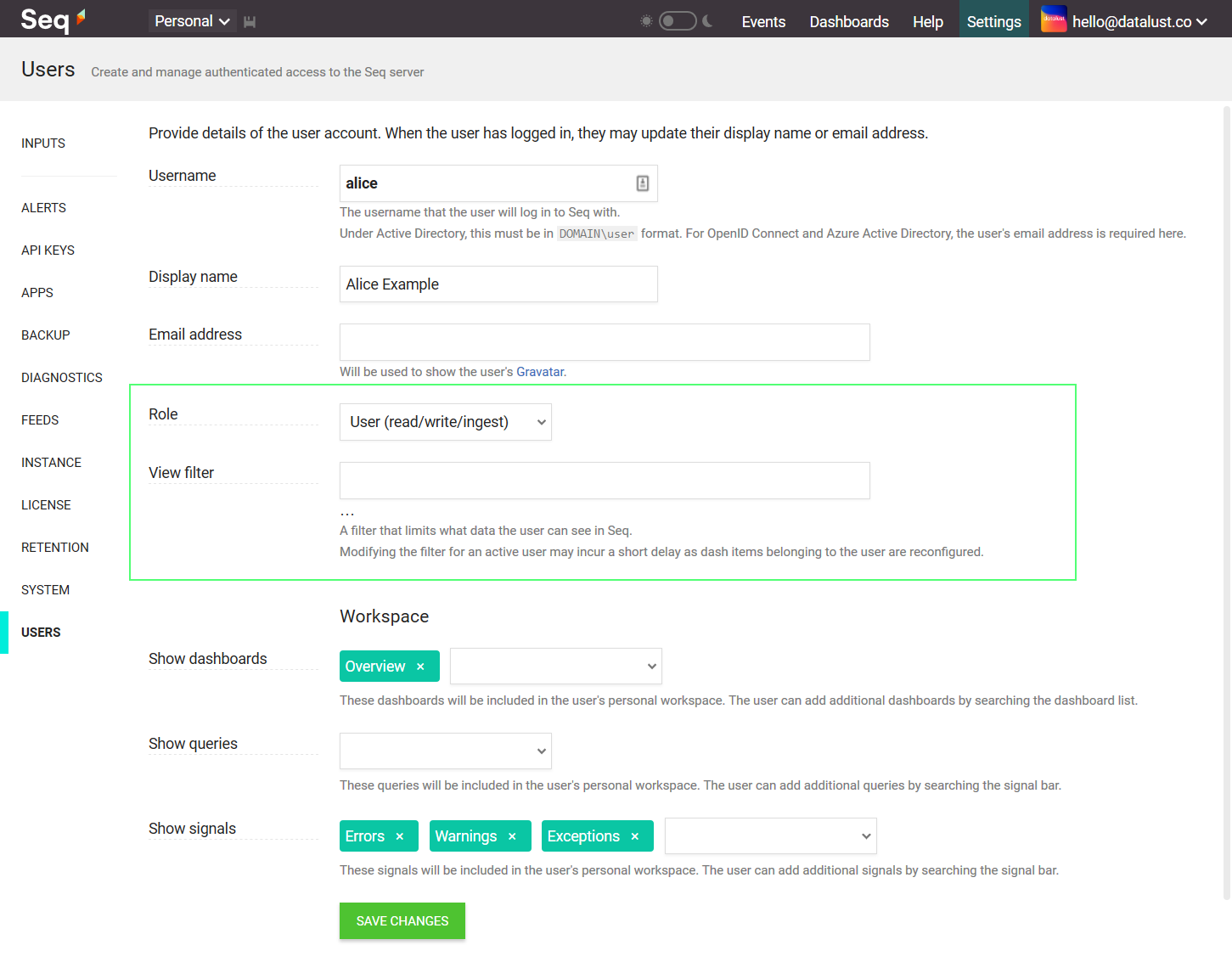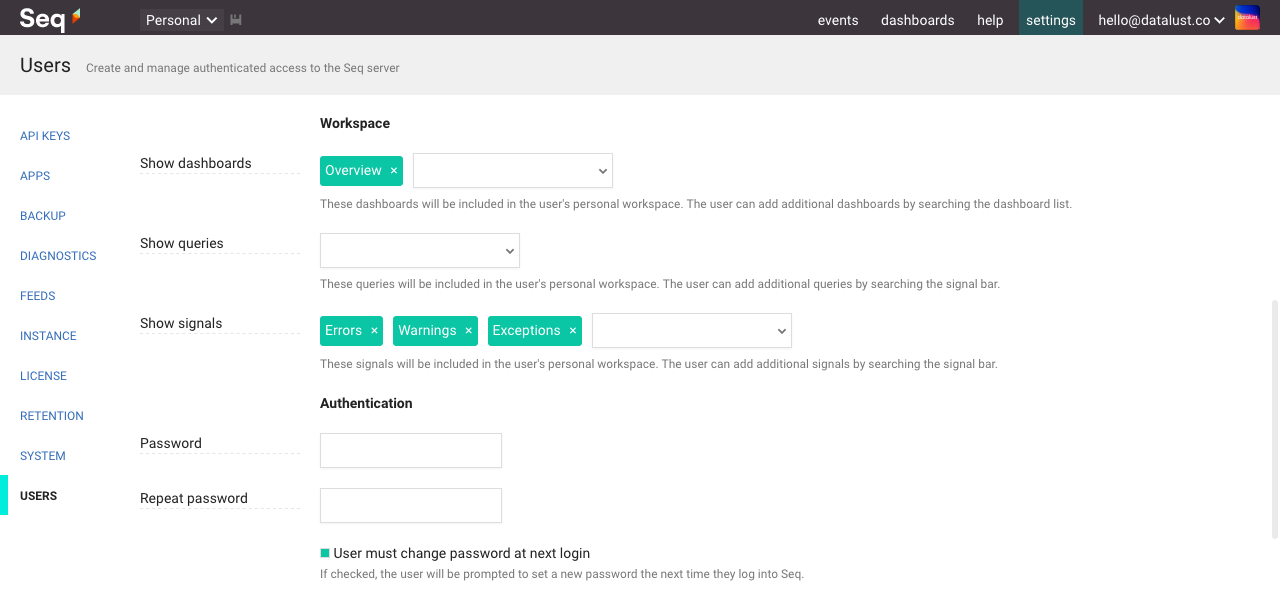Managing Users
User accounts provide authenticated access and personalization
When Seq is first installed, it will start in Single User mode.
To create more user accounts in Seq, you'll need a multi-user license. Visit the Seq homepage to get one.
Enabling authentication
Authentication can be enabled from the Settings > Users screen.

You'll be prompted to enter details for the first administrator account.
If you're using OpenID Connect, Active Directory or Azure Active Directory authentication, choose the appropriate authentication provider and check the documentation for information on how to configure it here, too.

With authentication enabled, you can now create additional user accounts.
Don't forget that with authentication enabled, you can now require API keys when events are written, too.
Granting permissions
Seq has four built-in user roles. When creating or editing a user account, specify:
- Administrator - the user has full access to the Seq instance
- User (read-only) - the user can query events and view dashboards, but not modify anything
- User (read/write) - the user can read and write personal and shared signals, queries, and dashboards
- User (read/write/ingest) - in addition to the read/write permissions, the user can send events through the HTTP ingestion endpoint

View filters
Each user may additionally be constrained by a view filter that will limit the data they can view in Seq.
For example, by specifying:
Application = 'Patient Portal'The user will only be able to view and interact with events carrying the value Patient Portal in the Application property.
Only non-administrative users can have filtered views.
Default workspace
Each user can be configured with a default personal workspace that includes the signals, queries and dashboards that will be visible when first browsing to Seq:

Updated 5 months ago
